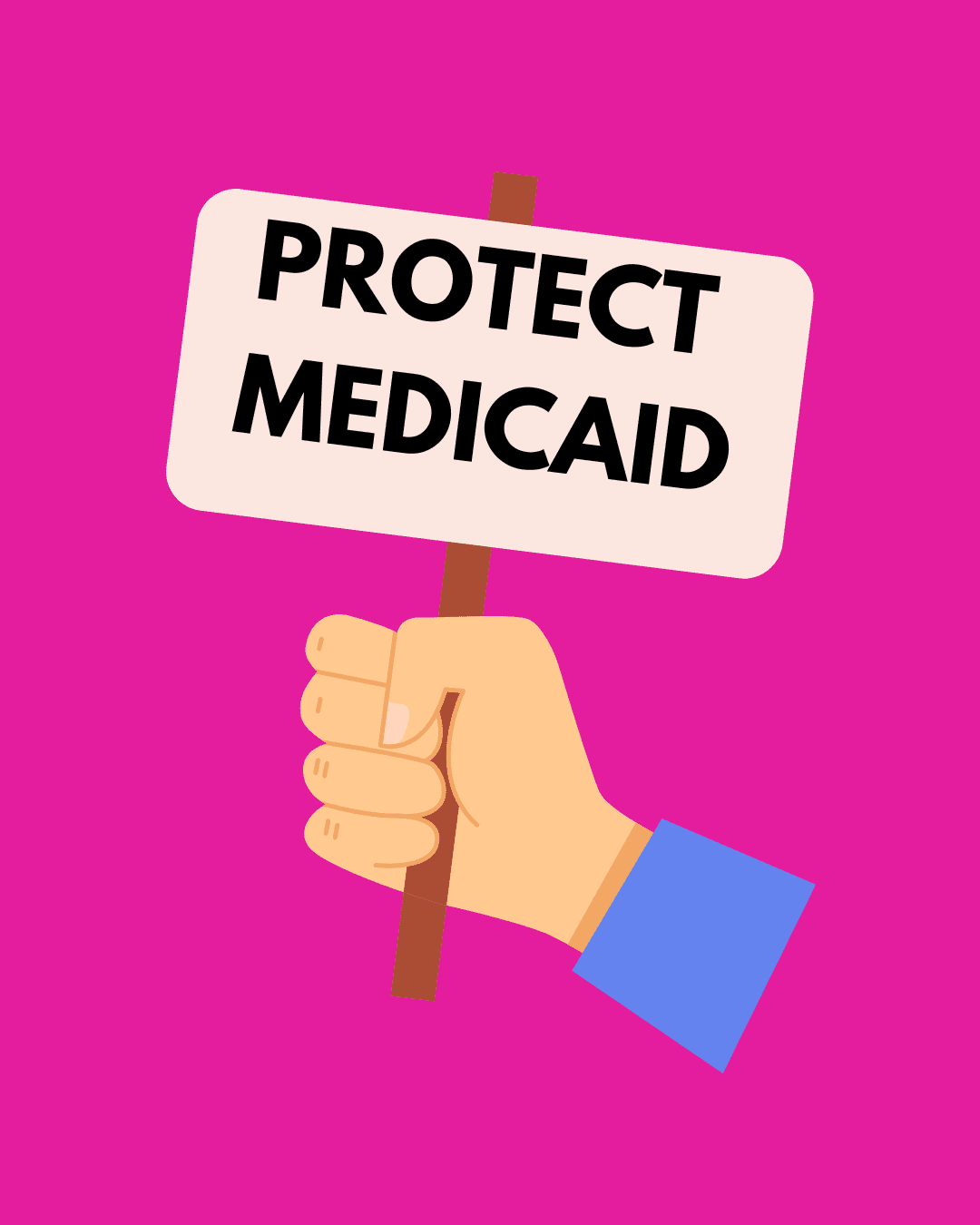In recent months, news feeds have been flooded with calls to action to protect Medicaid. Do you or a family member depend on Medicaid to pay for doctor visits? Do you or a family member depend on Medicaid to pay for prescriptions? Do you or a family member rely on Medicaid to access Home & Community Based Services (HCBS)? Do you work for an organization that receives Medicaid funding? If you answered YES to any of these questions, you need to pay attention.
The Concern
Many issues are at play that could affect Medicaid coverage and access to care. Medicaid is the primary program providing comprehensive health and long-term care to one in five people living in the U.S. While Medicaid was not discussed much on the campaign trail, big changes are being proposed through executive actions by the current administration.
Congress is currently debating bills that will result in cuts to Medicaid.
What Can We Do?
It is important that we educate legislators on how Medicaid impacts our lives.
The best way to make this happen is by sharing your story. Thanks to our friends at Rutgers University Boggs Center on Disability and Human Development, Values Into Action is sharing resources to help people compose their story.
This is a guide you can follow to share your story!
Guidance from PHAN (Pennsylvania Health Access Network)
In partnership with PHAN (Pennsylvania Health Access Network) Values recently hosted webinars to share information on how to advocate for Medicaid.
PHAN recognizes the urgency and has launched the Medicaid Defenders campaign.
Robin Stelly, PHAN Organizer, shared a few simple actions that each of us should take:
- making a call to the lawmaker’s office
- sharing their story with us along with a photo
- sharing their story via video
- getting five friends to take an action like sending an email or making a call
- being part of a social media campaign
- submitting a letter to the editor
- being featured in one of PHAN’s op-eds
- participating in a focus group
If you would like to learn more about the Medicaid Defenders campaign, Robin encourages you to schedule a call with her by using this link
Need help? We are here to support you. Reach out to your Support Partner, Supports Broker, Housing Resource Specialist, or Supervisor if you need help composing your story.
The most important thing we can do is to get involved and speak up! The life of someone you know may depend on it.
Facts About Medicaid
- Medicaid was established in 1965, part of the Great Society set of programs during President Lyndon B. Johnson’s Administration.
- Medicaid is the primary program providing comprehensive coverage of health and long-term care to 83 million low-income people in the United States.
- More than 3 million Pennsylvanians – 1 in every 4 – get their health coverage through Medicaid.
- Almost half of Pennsylvanians covered by Medicaid are children, and one third of all PA births are covered by Medicaid.
- In Pennsylvania, Medicaid covers hundreds of thousands of seniors and people with disabilities, often covering services that most insurance plans do not.
- Pennsylvanians on Medicaid work. The vast majority of adults on Medicaid who can work are working, and the remainder are students or caregivers or cannot work due to illness or disability.
- Medicaid covers nursing home care for seniors; 3 in 5 nursing facility residents are covered by Medicaid.
- Medicaid funds school programs and services for kids with disabilities such as autism, speech impairments or intellectual disabilities.
- Medicaid is the nation’s primary payer of long-term services and supports (LTSS), including home and community-based services (HCBS) that allow individuals to live in their communities instead of institutions.
- Nationally, Medicaid is the largest payer for mental health and substance use disorder treatment.
- Medicaid helps fund rural hospitals by ensuring more patients can pay for their care. Rural hospitals in Medicaid expansion states are 62 percent less likely to close.
- A large body of evidence shows that Medicaid improves health, prevents premature deaths, and reduces medical debt and the likelihood of catastrophic out-of-pocket medical costs.
- Cuts to Medicaid may come in many forms. Proposals to cap funding, reduce the federal share of Medicaid spending, establish block grants, institute work requirements, or cut state revenue from provider taxes all have the same effect: Pennsylvanians will lose access to lifesaving healthcare, become sicker, and ultimately, the economy will suffer.
